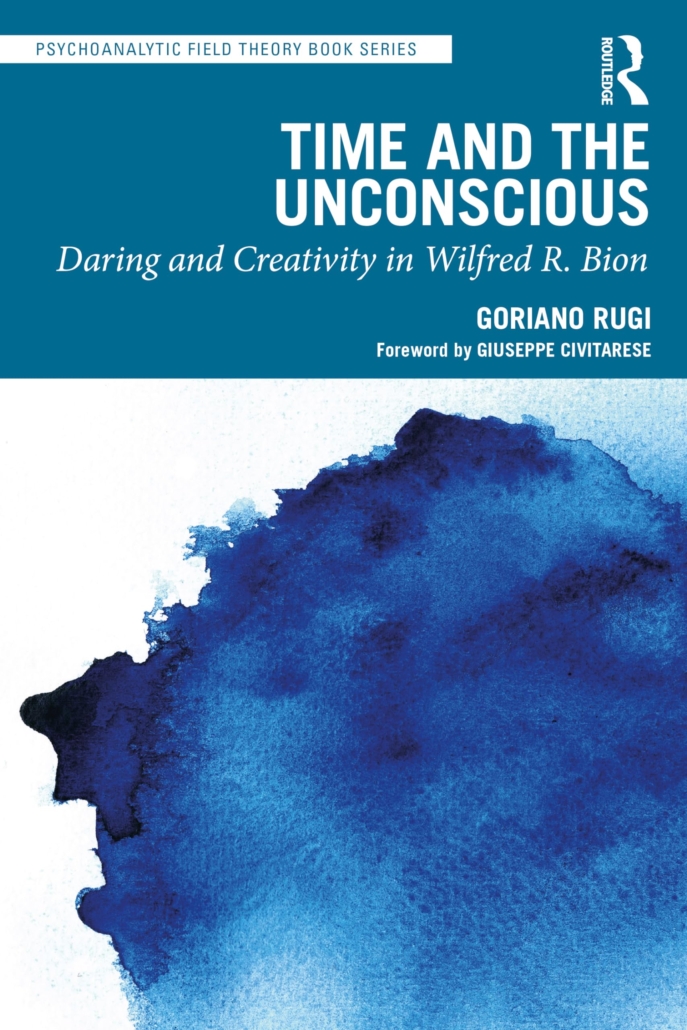Synopsis
Bion’s unfashionable thought is a challenge for our times in which anesthesia and mass thinking prevail. Stepping aside from Bionian terminology, the themes this book addresses are ‘time’ and ‘the unconscious’. In the present/past, the here and now reveals its relationship with the unredeemable time, which conditions our behaviour and is at the root of a state of hallucinosis in the form of a short-sighted view that is distorted by deep-seated wounds. What the book also brings out are resonances with developments in contemporary epistemology and physics that have helped found the new paradigm of Bionian field theory. The topic of the unconscious raises questions about its origin and the difference between the Bionian and the Freudian unconscious. In Bion we see an evolutionary, process character emerge, with a double movement of repetition and expansion within a single system in unstable equilibrium, for which there is no conscious feeling that does not also carry with it the shadow of the unconscious. This idea opens up a binocular vision that both enriches and disturbs, showing how our way of perceiving reality is conditioned by an unconscious vision that draws not only on our past but also on a protomental system that immerses the individual within a group and archaic dimension. And this turmoil can express itself through everyday images and words which retain traces of disturbing elements that can suddenly emerge in the most unthinkable situations. Archaic elements that are often tied up with blood and sex, with the sacred and with myth, and which Bion condenses into the expression blood everywhere.
Bion’s unfashionable thought is a challenge for our times in which anesthesia and mass thinking prevail. The themes this book addresses are time and the unconscious. In the present/past, the here and now reveals its relationship with the unredeemable time, which conditions our behaviour and is at the root of a state of hallucinosis in the form of a short-sighted view that is distorted by deep-seated wounds. The book also highlights the resonances with contemporary epistemology and physics that underlie the new paradigm of psychoanalytic field theory. The topic of the unconscious raises questions about its origin and the difference between the Bionian and the Freudian unconscious. In Bion we see an evolutionary, process character emerge, with a double movement of repetition and expansion within a single system in unstable equilibrium, for which there is no conscious feeling that does not also carry with it the shadow of the unconscious. Drawing on psychoanalytic and philosophical concepts this book is essential reading for psychoanalysts, psychotherapists, philosophers and anyone who wishes to understand more fully what it means to be human.
Goriano Rugi, M.D., psychiatrist, psychotherapist, is a member and training analyst of the Italian Institute of Group Psychoanalysis (I.I.P.G.). He teaches at the I.I.P.G. School of Specialisation in Milan and at the European Research Institute of Psychoanalytic Psychotherapy in Padua. He is a trainer and supervisor at various Institutions. He lives and works in Verona. His best-known works are Transformations of Pain (2015), Diagnosis and Mental Disorders (2018) and Time and the Unconscious(2023), Milan, FrancoAngeli.
‘Rugi manages to bring back Wilfred Bion into the scene by clarifying the origins, which concern bionian’s complete production in its entirety, and relating it in a consistent and careful manner to that of Freud’s. The result is a book that is both an excavating and an opening, highly useful and indispensable “Memory for the Future.”’ Lorena Preta, is an ordinary member of the SPI and the IPA, head of the international research group Geographies of Psychoanalysis.
‘Rugi approaches the concepts of Time and the Unconscious through his own process of dreaming Bion’s thinking. He aims to make it accessible not only to specialists, but also to a wider audience.’Antònia Grimalt, M.D., is a training and supervising analyst for the Spanish Society (SEP-IPA), editor of Bion, Intuition and the expansion of psychoanalytic theory and Bion and Intuition in the clinical setting.
‘A timely and valuable text as through two fundamental themes of psychoanalysis, time and the unconscious, it clarifies the Freudian roots of Wilfred R. Bion’s thinking and highlights the profound differences and the richness of a new paradigm that is still evolving.’ Sarantis Thanopulos, ordinary member of the SPI with training functions, is the current President of the SPI.


